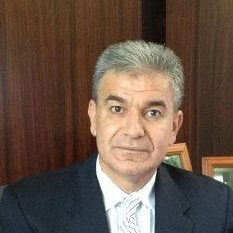 In a conversation I had recently with the Minister of Public Works, the Minister proposed an ambitious program: to provide road access to one thousand Yemeni villages. He reckoned it would cost around US$1 billion. This was on top of something the Minister had already started, a project for an expressway to connect the cities of Aden, Taiz, Sana’a, Amran, and Saada to the Saudi Border. Financing for part of this other ambitious project had been secured from Saudi Arabia and the World Bank. We are working together to secure funding to finance the rest of the expressway.
In a conversation I had recently with the Minister of Public Works, the Minister proposed an ambitious program: to provide road access to one thousand Yemeni villages. He reckoned it would cost around US$1 billion. This was on top of something the Minister had already started, a project for an expressway to connect the cities of Aden, Taiz, Sana’a, Amran, and Saada to the Saudi Border. Financing for part of this other ambitious project had been secured from Saudi Arabia and the World Bank. We are working together to secure funding to finance the rest of the expressway.
Back to connecting the one thousand villages: My initial reaction was that while this was a noble program, and should be supported, funding is scarce, and it is not reasonable to allocate all of the donors’ funding to one sector. My heart is with the rural population: in my early years working at the Bank, I managed the rural access program in Vietnam where the government of Vietnam had a very similar ambition. The program was to connect the center of all the communes in the country to the national highway system. I started the program with the then Minister of Transportation. My understanding from my colleagues who work in Vietnam these days is that the program has been completed.
I went back to my place and started thinking of what the Minister was saying. He is right, the rural population needs their access: it would transform their communities. They could send their children to school, go to health clinics to immunize them, and market their farm produce. There are many other benefits. I expanded my imagination (without the help of qat!). They not only needed roads, but also clean water, electricity, schools of their own, and clinics. But where would the money come from? Clearly, all the donors’ money together would not be enough...So, from where?
I had another idea. Maybe the government could re-allocate the funds that support a diesel subsidy in Yemen to develop a program to build roads, water supplies, schools, and health clinics for the one thousand villages. Imagine; the Yemeni government spends around US$2 billion a year subsidizing the cost of diesel. While this benefits some of the poor, the International Monetary Fund, World Bank and local think tanks all agree that in reality, a handful of powerful people are the ones who benefit most from the US$2 billion spent on this diesel subsidy every year.
If the Yemeni government re-allocated the funds spent on its diesel subsidy, it would have saved around US$10 billion over a five year period. Here is what the government could do with this huge amount of money: build access roads to one thousand villages and provide them also with water, schools, and health clinics. Build power stations to serve the entire country, double the payments for the 1.5 million poor families who get help from the Social Welfare Fund, and finance the rest of the national expressway system. The government would even probably still have money in hand to provide Yemen’s main cities with funds to build roads, improve their water system, build good hospitals and schools.
These projects could employ hundreds of thousands, if not millions of people, who would in turn support their families. Some might go on to establish small businesses that would hire other people.
But, before the government removes the subsidy, it should address the needs of the poor and the vulnerable, and those who will be affected by this removal. Government also needs to explain to the people why the government is doing this, and that the money saved will be channeled to the rightfulpeople of Yemen instead of benefiting very few families.


Join the Conversation